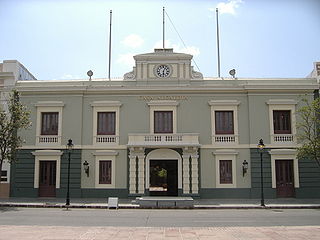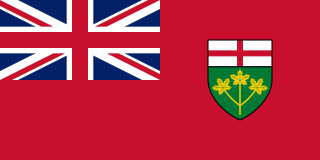
A municipality is usually a single administrative division having corporate status and powers of self-government or jurisdiction as granted by national and regional laws to which it is subordinate. It is to be distinguished (usually) from the county, which may encompass rural territory or numerous small communities such as towns, villages and hamlets.
A local government is a form of public administration which, in a majority of contexts, exists as the lowest tier of administration within a given state. The term is used to contrast with offices at state level, which are referred to as the central government, national government, or federal government and also to supranational government which deals with governing institutions between states. Local governments generally act within powers delegated to them by legislation or directives of the higher level of government. In federal states, local government generally comprises the third tier of government, whereas in unitary states, local government usually occupies the second or third tier of government, often with greater powers than higher-level administrative divisions.
A unitary authority is a type of local authority that has a single tier and is responsible for all local government functions within its area or performs additional functions which elsewhere in the relevant country are usually performed by national government or a higher level of sub-national government.
In many countries, a mayor is the highest-ranking official in a municipal government such as that of a city or a town.
The term township generally means the district or area associated with a town. However, in some systems, no town needs to be involved. The specific use of the term to describe political subdivisions has varied by country, usually to describe a local rural or semi-rural government within the country itself.
A town council, village council or rural council is a form of local government for small municipalities.
Direct election is a system of choosing political officeholders in which the voters directly cast ballots for the persons, or political party that they desire to see elected. The method by which the winner or winners of a direct election are chosen depends upon the electoral system used. The most commonly used systems are the plurality system and the two-round system for single-winner elections, such as a presidential election, and party-list proportional representation for the election of a legislature.
The Markham City Council is the governing body of the city of Markham, Ontario, Canada. It consists of the mayor, eight councillors who each represent one of the city's eight wards, and four regional councillors who, along with the mayor, are elected via double direct election to represent the city at York Regional Council.
Douglas Richard Reycraft is a former politician in Ontario, Canada. He was a Liberal member in the Legislative Assembly of Ontario from 1985 to 1990 who represented the southwestern Ontario riding of Middlesex. From 2001 to 2014 he was mayor of Southwest Middlesex.

The Chairman of the Municipality of Metropolitan Toronto or Metro Chairman was the regional chair of Metropolitan Toronto, Ontario, Canada, and the most senior political figure in the municipality. The Metro Chairman was elected by the members of Metropolitan Toronto Council.
John Rankin was a hotelier, merchant and political figure in Ontario, Canada. He represented Renfrew North in the House of Commons of Canada from 1867 to 1869 as a Conservative.
Elections were held in Renfrew County, Ontario on October 25, 2010 in conjunction with municipal elections across the province.
Elections were held in Haliburton County, Ontario on October 25, 2010 in conjunction with municipal elections across the province.

Local Bodies in Tamil Nadu constitute the three tier administration set-up in the South Indian state of Tamil Nadu. It is a system of local government which forms the last level from the Centre. Chennai Corporation in the then Madras Presidency, established in 1688, is the oldest such Local Body not only in India but also in any commonwealth nations outside United Kingdom.
Leonard Joseph Quilty was a Canadian politician, who represented Renfrew South in the Legislative Assembly of Ontario from 1962 to 1963 as a Liberal member. He was elected in a by-election after the death of PC MPP James Anthony Maloney in October 1961. He was defeated in the general election held in 1963. While an MPP, Quilty served on six Standing Committees.
Elections were held in Renfrew County, Ontario on October 27, 2014 in conjunction with municipal elections across the province.
In Canada, a double direct election is an election in which an individual is elected to two political offices in one electoral event. The elected individual serves on a regional council and a constituent municipal government within that region. It differs from indirect election in that in a double direct election an individual is automatically elected to two political positions, whereas in an indirect election, candidates in a municipal election must state the intention to also serve on regional council before that election.. The double direct election protocol is slightly different in the case of Bowen Isand, an Island Municipality within the Islands Trust in BC. There are two ballots, one for municipal council, the other for Islands Trust. Candidates that choose to run for both offices declare that intent. The two candidates receiving the highest number of votes for Islands Trust are elected to that body, but only if they are also successful as candidates for the municipal council.
Elections were held in Renfrew County, Ontario on October 22, 2018 in conjunction with municipal elections across the province.




